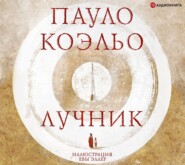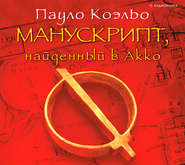По всем вопросам обращайтесь на: info@litportal.ru
(©) 2003-2024.
✖
Like the Flowing River: Thoughts and Reflections
Автор
Год написания книги
2019
Настройки чтения
Размер шрифта
Высота строк
Поля
Later on, I ask the owner of the small hotel about the Devil’s Pool.
‘It might just be superstition,’ he says, ‘but the fact is that eleven tourists have died there in the last ten years, and they were all men.’
The Solitary Piece of Coal (#ulink_ad81a6d9-cd4d-5d66-b8cf-66aa53828093)
I read in an on-line newspaper on the internet that, on 10 June 2004, in Tokyo, a man was found dead in his pyjamas.
So far, so good. I think that most people who die in their pyjamas (a) either died in their sleep, which is a blessing, or (b) were with their family or in a hospital bed, meaning that death did not arrive suddenly, and they all had time to get used to ‘the Unwanted Guest’, as the Brazilian poet, Manuel Bandeira, called it.
The news item went on to say that, when he died, the man was in his bedroom. That cancels out the hospital hypothesis, leaving the possibility that he died in his sleep, without suffering, without even realizing that he wouldn’t live to see the morning light again.
However, there remains one other possibility: that he was attacked and killed.
Anyone who knows Tokyo also knows that, although it is a vast city, it is also one of the safest places in the world. I remember once stopping with my Japanese publishers for a meal before driving on into the interior of Japan. All our cases were on the back seat of the car. I immediately said how dangerous this was; someone was bound to pass, see our luggage, and make off with our clothes and documents and everything else. My publisher smiled and told me not to worry; he had never known such a thing to happen in his entire life (and, indeed, nothing did happen to our luggage, although I spent the whole of supper feeling tense).
But let’s go back to our dead man in pyjamas. There was no sign of struggle or violence. An official from the Metropolitan Police, in an interview with the newspaper, stated that the man had almost certainly died of a sudden heart attack. So we can also reject the murder hypothesis.
The corpse was found by the employees of a construction company on the second floor of a building in a housing development that was about to be demolished. Everything would lead us to think that our dead man in the pyjamas, having failed to find somewhere to live in one of the most densely populated and most expensive places in the world, had simply decided to live in a building where he wouldn’t have to pay any rent.
Then comes the tragic part of the story. Our dead man was nothing more than a skeleton wearing pyjamas. Beside him, was an open newspaper dated 20 February 1984. On a table nearby, the calendar marked the same day.
He had been there for twenty years.
And no one had noticed his absence.
The man was identified as an ex-employee of the company who had built the housing development, where he had moved at the beginning of the 1980s, immediately after getting divorced. He was just over fifty on the day he was reading the newspaper and suddenly departed this life.
His ex-wife had never tried to get in touch with him. The journalists went to the company where he had worked and discovered that the company had gone bankrupt immediately after the project was finished, because they had failed to sell any of the apartments, which would explain why they did not find it strange when the man stopped turning up for work. The journalists tracked down his friends, who attributed his disappearance to the fact that he had borrowed money from them and hadn’t been able to pay them back.
The news item ended by saying that the man’s mortal remains were returned to his ex-wife. When I finished reading the article, I kept thinking about that final sentence: the ex-wife was still alive; and yet, for twenty years, she had never once tried to contact him. What can have been going on inside her mind? That he didn’t love her any more, and that he had decided to cut her out of his life for good? That he had met another woman and disappeared? That this is simply what life is like once the divorce proceedings are over, and that there is no point in continuing a relationship once it has been legally terminated? I imagine what she must have felt when she learned the fate of the man with whom she had shared a large part of her life.
And then I thought about the dead man in pyjamas, about his complete and utter isolation, to the point that, for twenty long years, no one in the whole world had noticed that he had simply vanished without trace. I can only conclude that worse than hunger or thirst, worse than being unemployed, unhappy in love or defeated and in despair, far worse than any or all of those things, is feeling that no one, absolutely no one, cares about us.
Let us say a silent prayer for that man, and thank him for making us think about how important friends are.
The Dead Man Wore Pyjamas (#ulink_ac619800-246c-5d68-9a11-65d2e7025529)
Juan always used to attend the Sunday service at his church, but he began to feel that the priest was always saying the same thing, and so stopped going.
Two months later, one cold winter night, the priest came to visit him.
‘He’s probably come to try and persuade me to go back,’ Juan thought to himself. He felt that he couldn’t give the real reason for his absence – the priest’s repetitive sermons. He needed to find an excuse and, while he was thinking, he placed two chairs beside the fire and started talking about the weather.
The priest said nothing. After trying in vain for some time to start a conversation, Juan gave up. The two men sat on in silence for nearly half an hour, staring into the fire.
At that point, the priest got up and, with one of the logs that had not yet burned, he pushed one piece of coal away from the flames.
Since there was not enough heat for the coal to continue burning, it began to cool. Juan quickly drew it back into the centre of the fire.
‘Good night,’ said the priest, getting up to leave.
‘Good night, and thank you very much,’ replied Juan. ‘However brightly a piece of coal may be burning, it will soon burn out if you remove it from the flames. However intelligent a man may be, he will soon lose his warmth and his flame if he distances himself from his fellow man. I’ll see you at church next Sunday.’
Manuel Is an Important and Necessary Man (#ulink_9448bd15-2a3e-52bf-9bb6-c857c531688a)
Manuel needs to be busy. If he is not, he thinks that his life has no meaning, that he’s wasting his time, that society no longer needs him, that no one loves or wants him.
So, as soon as he wakes up, he has a series of tasks to perform: to watch the news on television (something might have happened in the night); to read the newspaper (something might have happened during the day yesterday); to tell his wife not to let the children be late for school; to take the car or catch a taxi or a bus or the metro, all the time thinking hard, staring into space, looking at his watch or, if possible, making a few calls on his mobile phone, and ensuring that everyone can see what an important man he is, useful to the world.
Manuel arrives at work and sits down to deal with the paperwork that awaits him. If he’s an employee, he does his best to make sure that his boss has seen that he’s arrived on time. If he’s a boss, he sets everyone to work immediately. If there are no important tasks to be done, Manuel will invent them, create them, come up with a new plan, develop new lines of action.
Manuel goes to lunch, but never alone. If he is a boss, he sits down with his friends and discusses new strategies, speaks ill of his competitors, always has a card up his sleeve, complains (with some pride) of overwork. If Manuel is an employee, he, too, sits down with his friends, complains about his boss, complains about the amount of overtime he’s doing, states with some anxiety (and with some pride) that various things in the company depend entirely on him.
Manuel – boss or employee – works all afternoon. From time to time, he looks at his watch. It’s nearly time to go home, but he still has to sort out a detail here, sign a document there. He’s an honest man and wants to justify his salary, other people’s expectations, the dreams of his parents, who struggled so hard to give him a good education.
Finally, he goes home. He has a bath, puts on some more comfortable clothes, and has supper with his family. He asks after his children’s homework and what his wife has been doing. Sometimes, he talks about his work, although only to serve as an example, because he tries not to bring his work problems home with him. They finish supper, and his children – who have no time for examples, homework, or other such things – immediately leave the table and go and sit down in front of the computer. Manuel, in turn, goes and sits down in front of that piece of apparatus from his childhood called the television. He again watches the news (something might have happened during the afternoon).
He always goes to bed with some technical book on his bedside table – whether he’s a boss or an employee, he knows that competition is intense, and that anyone who fails to keep up to date runs the risk of losing his job and facing that worst of all curses: having nothing to do.
He talks a little to his wife; he is, after all, a nice, hard-working, loving man who takes care of his family, and is prepared to defend it whatever the circumstances. He falls asleep at once, and he sleeps knowing that he will be very busy tomorrow, and that he needs to rebuild his energies.
That night, Manuel has a dream. An angel asks him: ‘Why are you doing this?’ He replies that it’s because he’s a responsible man.
The angel goes on: ‘Would you be capable of taking at least fifteen minutes of your day to stop and look at the world, and at yourself, and simply do nothing?’ Manuel says that he would love to do that, but he doesn’t have time. ‘You’re lying to me,’ says the angel. ‘Everyone has time to do that. It’s just that they don’t have the courage. Work is a blessing when it helps us to think about what we’re doing; but it becomes a curse when its sole use is to stop us thinking about the meaning of our life.’
Manuel wakes up in the middle of the night in a cold sweat. Courage? How can a man who sacrifices himself for his family not have the courage to stop for fifteen minutes a day?
It’s best to go back to sleep. It was just a dream; these questions will get him nowhere; and tomorrow he’s going to be very, very busy.
Manuel Is a Free Man (#ulink_d318bba2-7412-5e9f-9a74-679e602d2344)
Manuel works for thirty years without stopping. He brings up his children, sets a good example, and devotes all his time to work, never asking: ‘Does what I’m doing have any meaning?’ His one thought is that the busier he is, the more important he will be in the eyes of the world.
His children grow up and leave home. He gets promotion at work. One day, he receives a watch or a pen, as a reward for all those years of devotion. His friends shed a few tears, and the longed-for moment arrives: he’s retired, free to do whatever he wants!
During the first few months, he occasionally visits the office where he worked, talks to his old friends, and surrenders to the pleasure of doing something he always dreamed of: getting up late. He goes for a walk along the beach or through town; he has his house in the country, earned by the sweat of his brow; he discovers gardening, and gradually penetrates the mysteries of plants and flowers. Manuel has time, all the time in the world. He travels, using some of the money he has managed to save. He visits museums and learns in two hours about ideas that took painters and sculptors from different eras centuries to develop; but he at least has the feeling that he is broadening his cultural knowledge. He takes hundreds and thousands of photos and sends them to his friends – after all, they need to know how happy he is.
More months pass. Manuel learns that the garden does not follow exactly the same rules as man – what he planted will take time to grow, and there is no point in constantly checking to see if there are buds on the rose bush yet. In a moment of genuine reflection, he discovers that all he saw on his journeys was the landscape outside the tourist bus, and monuments which are now preserved in various 6 × 9 photos. But the truth is, he did not feel any real excitement – he was more concerned with telling his friends about it than with actually experiencing the magic of being in a foreign country.
He continues to watch the television news and reads more newspapers (because he has more time), considering himself to be a very well-informed person, able to talk about things which, before, he had no time to study.
He looks for someone with whom to share his opinions, but they are all immersed in the river of life, working, doing something, envying Manuel his freedom and, at the same time, content to be useful to society, and to be ‘occupied’ with something important.
Manuel seeks comfort in his children. They always treat him with great affection – he has been an excellent father, an exemplar of honesty and dedication – but they, too, have other concerns, although they consider it their duty to be there for Sunday lunch.
Вы ознакомились с фрагментом книги.
Приобретайте полный текст книги у нашего партнера:
Приобретайте полный текст книги у нашего партнера:

















